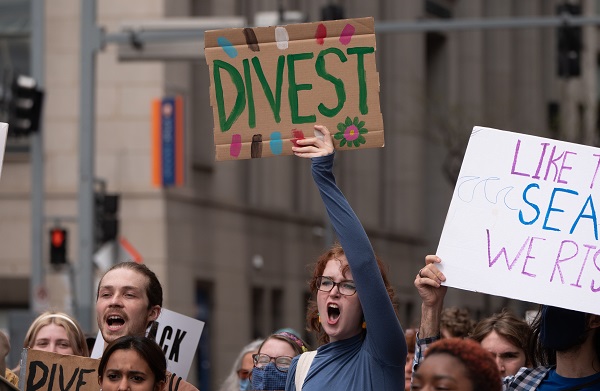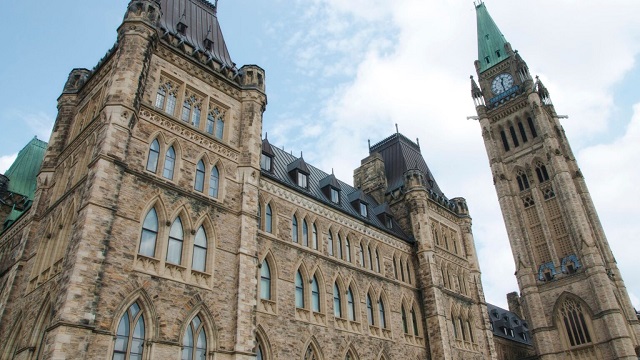National
Furey a major contrast with Trudeau on affordability

From the Canadian Taxpayers Federation
Author: Jay Goldberg
If Canadians want to find an example of a Liberal politician who cares about affordability, they should look to St. John’s, not Ottawa.
Time and time again, Newfoundland and Labrador Premier Andrew Furey has stood on the side of taxpayers.
The latest example is his government’s decision to extend its 8.05 cent per litre gas tax cut for another year.
The gas tax cut has been in place for 21 months and has saved the average two-car Newfoundland and Labrador family more than $800. Another 12 months of lower gas prices will see family savings soar to more than $1,000.
Furey first announced the temporary tax cut in June 2022 and has now extended it twice.
The Furey government has also spoken out strongly about the detrimental impact of the carbon tax on Newfoundlanders and Labradorians.
In criticizing the Trudeau government’s carbon tax late last year, Furey noted “there is no subway” for his constituents to take as an alternative to the ever-increasing costs of driving a car to get to work or to bring kids to school.
That comment was a jibe at the infamous remarks federal Finance Minister Chrystia Freeland made when encouraging Canadians who can’t afford to pay the carbon tax to bike or take transit.
Furey noted if rural Canadians don’t have other transit options – and many don’t – then “the fundamental premise on which the [carbon tax] is based is flawed.”
Furey was also a leader in calling on Trudeau to take the carbon tax off all home heating, noting repeatedly that heating one’s home in Canada in the winter is not optional.
Under pressure, Trudeau finally did so through a temporary suspension of the carbon tax on home heating oil, which is a popular method of home heating in Atlantic Canada, but not in other regions of the country.
To Furey’s credit, he continued to call on the federal government to offer relief to Canadians who don’t use furnace oil for home heating.
Juxtapose that against the policies of Prime Minister Justin Trudeau.
Without campaigning on it, Trudeau sprung a carbon tax on Canadians in 2019. He’s increased it every year since. And he plans to keep jacking it up every year until 2030.
Trudeau has tried to sell his policies by claiming most Canadians are getting more money back from carbon tax rebates than they pay in carbon taxes. Many of Trudeau’s allies have suggested that somehow the carbon tax actually is an affordability measure.
But the Parliamentary Budget Officer has laid out the truth: the average Canadian family is losing money from the carbon tax, big time.
The average Newfoundland and Labrador family lost $347 from the carbon tax last year, even after the rebates. That’s set to climb to $1,316 a year by 2030.
For years, Trudeau told us families would be better off with the carbon tax. But after pressure from Furey and other Atlantic Canadian politicians, he temporarily removed the carbon tax on home heating oil for the next three years.
If that’s not a mea culpa that the carbon tax makes life less affordable, then Santa Claus and the Easter Bunny must be real.
The broader contrast between Furey and Trudeau is their approach to cost of living. Furey looks at what’s taking cash out of families’ wallets – gas and carbon taxes – and tries to lessen that burden by fighting for lower taxes. Trudeau’s solution to make life more affordable appears to be more taxes, more spending and more debt.
The bottom line is that Trudeau, who is sinking in the polls and faces frustrated taxpayers from coast to coast, should learn a thing or two from Furey. Canadians want life to be more affordable, and that means lowering the tax burden, not increasing it.
Business
Honda deal latest episode of corporate welfare in Ontario

From the Fraser Institute
By Jake Fuss and Tegan Hill
If Honda, Volkswagen and Stellantis are unwilling to build their EV battery plants in Ontario without corporate welfare, that sends a strong signal that those projects make little economic sense.
On Thursday, the Trudeau and Ford governments announced they will dole out an estimated $5 billion in corporate welfare to Honda so the auto giant can build an electric vehicle (EV) battery plant and manufacture EVs in Ontario. This is the third such deal in Ontario, following similar corporate welfare handouts to Volkswagen ($13.2 billion) and Stellantis ($15.0 billion). Like the previous two deals, the Honda deal comes at a significant cost to taxpayers and will almost certainly fail to create widespread economic benefits for Ontarians.
The Trudeau and Ford governments finalized the Honda deal after more than a year of negotiations, with both governments promising direct incentives and tax credits. Of course, this isn’t free money. Taxpayers in Ontario and the rest of Canada will pay for this corporate welfare through their taxes.
Unfortunately, corporate welfare is nothing new. Governments in Canada have a long history of picking their favoured firms or industries and using a wide range of subsidies and other incentives to benefit those firms or industries selected for preferential treatment.
According to a recent study, the federal government spent $84.6 billion (adjusted for inflation) on business subsidies from 2007 to 2019 (the last pre-COVID year). Over the same period, provincial and local governments spent another $302.9 billion on business subsidies for their favoured firms and industries. (Notably, the study excludes other forms of government support such as loan guarantees, direct investments and regulatory privileges, so the total cost of corporate welfare during this period is actually much higher.)
Of course, when announcing the Honda deal, the Trudeau and Ford governments attempted to sell this latest example of corporate welfare as a way to create jobs. In reality, however, there’s little to no empirical evidence that corporate welfare creates jobs (on net) or produces widespread economic benefits.
Instead, these governments are simply picking winners and losers, shifting jobs and investment away from other firms and industries and circumventing the preferences of consumers and investors. If Honda, Volkswagen and Stellantis are unwilling to build their EV battery plants in Ontario without corporate welfare, that sends a strong signal that those projects make little economic sense.
Unfortunately, the Trudeau and Ford governments believe they know better than investors and entrepreneurs, so they’re using taxpayer money to allocate scarce resources—including labour—to their favoured projects and industries. Again, corporate welfare actually hinders economic growth, which Ontario and Canada desperately need, and often fails to produce jobs that would not otherwise have been created, while also requiring financial support from taxpayers.
It’s only a matter of time before other automakers ask for similar handouts from Ontario and the federal government. Indeed, after Volkswagen secured billions in federal subsidies, Stellantis stopped construction of an EV battery plant in Windsor until it received similar subsidies from the Trudeau government. Call it copycat corporate welfare.
Government handouts to corporations do not pave the path to economic success in Canada. To help foster widespread prosperity, governments should help create an environment where all businesses can succeed, rather than picking winners and losers on the backs of taxpayers.
Authors:
Censorship Industrial Complex
Desperate Liberals move to stop MPs from calling Trudeau ‘corrupt’

From LifeSiteNews
Conservative MP Corey Tochor argued the term “corrupt” is an accurate description of Trudeau and his government.
“If you ask the Ethics Commissioner about all of the infractions that the Prime Minister has been charged and convicted with on corruption, you will find the truth to be that this is a corrupt government and Prime Minister”
Liberals are pushing for the word “corrupt” to be banned in Parliament amid ongoing ethics scandals within the Trudeau government.
On April 19, Liberal Member of Parliament (MP) Mark Gerretsen moved to prohibit MPs from referring to Prime Minister Justin Trudeau and his government as “corrupt,” arguing it is disrespectful towards the Liberal government.
“My point is that, today, during question period, the member for Regina—Wascana referred to the Prime Minister as ‘corrupt’ and to the government as ‘corrupt,’” he told the House of Commons.
“Although he did it today, it has been done a number of times in the House,” he continued. “I would say that terminology specifically goes against Standing Order 18.”
The House of Commons’ Standing Order 18 regulates speech within the House to ensure that MPs do not use disrespectful or offensive language.
“No member shall speak disrespectfully of the Sovereign, nor of any of the royal family, nor of the Governor General or the person administering the Government of Canada; nor use offensive words against either House, or against any member thereof,” it states. “No member may reflect upon any vote of the House, except for the purpose of moving that such vote be rescinded.”
“I would encourage the Chair, during this time of reflection over that week that he indicated he was going to do that, to consider my comment on this and to weigh into whether or not this is actually,” Gerretsen added before being interrupted by Conservative MPs calling for a debate.
However, Gerretsen refused to debate his suggestion, instead pushing for Conservatives to be censored. Gerretsen’s recommendation was supported by Bloc Quebecois MP Martin Champoux.
“I would like to build on what my colleague just said,” Champoux said. “I actually raised a point of order about this yesterday with the Speaker, who was in the chair at the time, to ask him to once again set out strict rules and clear guidelines for members to follow.”
“That would help us to better understand how far we can go,” he argued. “Right now and for the past few months, there has been a lack of consistency in the way freedom of expression is interpreted in the House and in the way measures are applied when members cross the line or do not follow the guidelines, which, again, are not exactly clear.”
However, Conservative MP Corey Tochor argued the term “corrupt” is an accurate description of Trudeau and his government.
“If you ask the Ethics Commissioner about all of the infractions that the Prime Minister has been charged and convicted with on corruption, you will find the truth to be that this is a corrupt government and Prime Minister,” he declared.
Indeed, between the ArriveCAN app scandal, alleged Chinese election meddling and the SNC-Lavalin affair, Canadian MPs seem well within their rights to call, or at least remain concerned, that Trudeau and his government are “corrupt.”
So, why are Liberals moving to have the term banned?
It appears Trudeau and his government prefer Canadians remain unaware of past and ongoing corruption scandals, preferring to silence those who remain unconvinced by Liberal Party propaganda.
In the last few years of Trudeau’s near-decade reign, the prime minister and his Liberals have become increasingly intolerant of opposing views, infamously labelling their critics during the COVID-era as “right-winged extremists” and a “small fringe minority.”
Unfortunately, it seems this trend is only going to continue.
As LifeSiteNews recently reported, law professor Dr. Michael Geist warned that the Trudeau government is “ready” to “gaslight” opponents of Bill C-63, a proposed law that could lead to jail time for vaguely defined online “hate speech” infractions.
While the banning of the word “corrupt” in Parliament may not yet be implemented, who is to say that if Bill C-63 is passed that the Trudeau government won’t decide to consider such accusations of corruption as meeting the definition of online “hate speech.”
Indeed, perhaps the Liberals’ move to ban the word “corrupt” should be considered a sign that they know they’ve lost the public’s trust and are acutely aware silencing opposition is their only option.
In fact, it would appear that Trudeau’s only response to dismal polling figures with respect to his scandal-plagued government’s popularity is to double down on censorship, rather than consider why citizens feel the way they do.
As the late U.S. President Harry S. Truman warned: “Once a government is committed to the principle of silencing the voice of opposition, it has only one way to go, and that is down the path of increasingly repressive measures, until it becomes a source of terror to all its citizens and creates a country where everyone lives in fear.”
-

 COVID-1918 hours ago
COVID-1918 hours agoJapanese study finds ‘significant increases’ in cancer deaths after third mRNA COVID doses
-

 Business16 hours ago
Business16 hours agoMaxime Bernier warns Canadians of Trudeau’s plan to implement WEF global tax regime
-

 Brownstone Institute14 hours ago
Brownstone Institute14 hours agoA Coup Without Firing a Shot
-

 COVID-1912 hours ago
COVID-1912 hours agoWHO Official Admits the Truth About Passports
-

 Energy10 hours ago
Energy10 hours agoAnti-LNG activists have decided that they now actually care for LNG investors after years of calling to divest
-

 Bruce Dowbiggin15 hours ago
Bruce Dowbiggin15 hours agoCoyotes Ugly: The Sad Obsession Of Gary Bettman
-

 Freedom Convoy13 hours ago
Freedom Convoy13 hours agoOttawa spent “excessive” $2.2 million fighting Emergencies Act challenge
-

 Frontier Centre for Public Policy17 hours ago
Frontier Centre for Public Policy17 hours agoThe tale of two teachers




